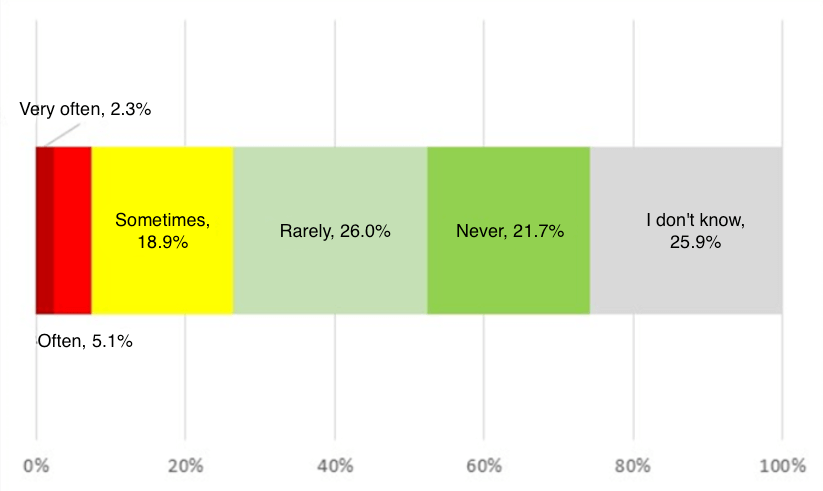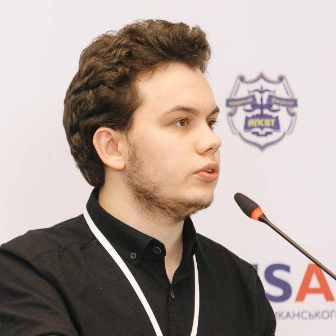Education is crucial for the well-being of every individual as well as for the overall economic development of the country. In Ukraine, over 70 percent of people have higher education. However, what is the quality of this education? It is no secret that in many higher education institutions, as well as in research establishments, dishonest practices such as plagiarism, cheating on exams, buying diploma papers, and even dissertations are widespread. As part of the education reform, the government has been trying for many years to raise the level of academic integrity. Recently, a group of parliamentarians registered a draft law on academic integrity (No. 10392). Will it help address the problem?
According to the definition in the Law of Ukraine “On Education,” academic integrity is a set of ethical principles and legally defined rules that participants in the educational process must adhere to during learning, teaching, and conducting scientific (creative) activities aimed at ensuring trust in the results of learning and/or scientific (creative) achievements.
Unfortunately, in science and education, as in other areas of life, deception, forgery, and falsifications are sometimes present, which diminish the value of education (how often do young graduates hear from potential employers, “Your diploma is worthless, show us your work experience”?), as well as impede scientific progress and erode trust in it. In many cases, the cause of academic dishonesty is the blurred understanding of “norms” in this field. For example, as revealed by a survey conducted by Vox Ukraine, cheating on others’ work is widespread in schools. Apparently, it is tolerated by both students and teachers. Unfortunately, the same can be said about higher education institutions. The situation in research institutions is less public (scandals like that of Illia Kyva defending his dissertation are rare), but it is unlikely to be much better. Therefore, the understanding by participants in the scientific and educational community of their own responsibility for adhering to academic integrity directly affects the level of education and the development of science and, therefore, the economic development of our country. Would a separate draft law help change the status quo?
Academic integrity in Ukrainian higher education institutions and research establishments
The OPTIMA project conducted the “2022 All-Ukrainian Academic Integrity and Open Science Survey” among students and the academic community. The survey is non-representative, with respondents filling out questionnaires voluntarily. However, the number of responses is quite large.
From the entire sample (7,727 questionnaires), we selected the responses of those respondents who had reviewed at least one scientific work in the last three years (2,502 questionnaires). As seen in Figure 1, 10% of those who provided significant responses reported that plagiarism occurs frequently at their institution of higher education. 29% of respondents consider their institutions free from plagiarism. The rest indicated that plagiarism occurs occasionally or rarely. However, it may be that some “don’t know” responses conceal the presence of plagiarism.
Figure 1. Based on your personal experience, how often does the use of others’ published works and ideas without proper citation to the primary source occur in your higher education institution?
From other questions in the same survey, one can infer the presence of other forms of misconduct, such as self-plagiarism, falsification of research results, lack of independent work, and so forth. But would the proposed legislation help address these issues?
Key provisions of the draft law
The laws “On Education” and “On Higher Education” contain certain provisions aimed at ensuring academic integrity: they define types of violations of integrity, outline the work of the National Agency for Quality Assurance in Education (NAHEQA), which is responsible for supporting integrity, and determine types of accountability for academic misconduct, including revocation of academic titles if obtained dishonestly.
However, the bill’s authors justify the need for a separate law by stating that “currently, issues of academic integrity are regulated in Ukraine’s laws only partially, unsystematically, without disclosing the deep content and ensuring legal clarity in understanding the essence of academic integrity… without disclosing the content of academic integrity violations and the basic rules and procedures for imposing academic responsibility.” Indeed, provisions regarding academic integrity are contained in several laws regulating education and science. At the same time, the “Law on Education” provides that “the procedure for detecting and establishing facts of academic integrity violations is determined by the authorized collegial body of the educational institution management, taking into account the requirements of this Law and special laws.” Therefore, this draft law is intended to become that very special law that regulates compliance with academic integrity in all areas where it is necessary. What does it offer?
Firstly, the bill’s authors propose adding values to the definition of academic integrity, formulating it as “a set of values, principles, and rules based on them that subjects of academic activity should follow during such activity.” They also explain that the concept of academic integrity is disclosed through such fundamental values as honesty, trust, respect, fairness, responsibility, and so on. However, such notions are evaluative, which can complicate the practical application of the law and may lead to a significant variety of interpretations.
Secondly, the draft law supplements the current list of types of violations of academic integrity formulated in Article 42 of the Law of Ukraine “On Education.” Violations of academic integrity will include not only plagiarism or falsification but also such common actions among participants of the educational and scientific processes as alienation or attribution of authorship, dishonest assessment of learning outcomes, lack of independent task execution, unauthorized assistance, academic sabotage (actions that impede the scientific activities of others, such as delaying the review of work, destruction of other researchers’ data, etc.), and institutional violations of academic integrity. In addition, the draft law specifies compliance with academic integrity outside educational or scientific institutions during publishing, expert activities, and organizing and conducting competitions.
Thirdly, the draft law proposes to transfer the consideration of cases of academic misconduct and punishment for it entirely to the responsibility of educational institutions and research institutions (currently, this is sometimes handled by NAHEQA or the Ministry of Education and Science). For this purpose, the mentioned organizations would have to establish a system for detecting violations of academic integrity, considering these cases, and punishing offenders (currently, such a system operates only in some educational and scientific institutions). However, firstly, it is worth including a provision for establishing such bodies in the relevant laws concerning education and science and also introducing a procedure for appealing the decisions of these bodies, for example, to the Scientific and Methodological Council of the Ministry of Education and Science (similar to the relevant provisions of the Procedure for revoking the decision on awarding a degree of higher education and assigning the corresponding qualification of August 26, 2021, No. 897), and to the court.
Such a system would allow each individual to more effectively understand to which body they would have the right to appeal in case someone else violates academic integrity, and it would also provide the opportunity to use the general procedure for appealing decisions imposing sanctions for academic misconduct on a specific individual.
Furthermore, the draft law specifies the procedure for holding accountable for academic misconduct and expands the list of sanctions for it. For employees of scientific or educational institutions, this includes not only revocation of academic titles or degrees and the right to hold certain positions but also deprivation of awards or honorary titles, as well as disciplinary responsibility: reprimand or dismissal. For students, the bill also proposes to add to academic sanctions (re-taking a course or exam, loss of scholarship or state support) educational measures: attending thematic sessions (lessons, lectures, courses, training sessions, etc.) on academic integrity and/or academic writing.
The Central Scientific and Expert Office of the Verkhovna Rada of Ukraine Secretariat has raised several concerns regarding the draft law. For instance, plagiarism can be both a violation of academic integrity and a violation of copyright, according to the “Law on Copyright and Related Rights.” Therefore, separating academic integrity from protecting intellectual property rights, as envisaged by the bill, may lead to different punishments for the same offense.
Furthermore, the bill proposes to establish that “the highest collegial governing body… of the educational institution, research institution, considers the relevant complaint and makes a decision by secret ballot, which is final and not subject to appeal.” This contradicts the Constitutional norm (Article 55), which guarantees everyone the right to appeal to the court decisions, actions, or inaction of state authorities, local self-government bodies, officials, and public servants. There are other inconsistencies with current legislation in the draft law, but they are less significant. For example, the draft law significantly expands the responsibilities of scientists regarding compliance with academic integrity compared to the “Law on Scientific and Scientific-Technical Activity.” However, it does not propose corresponding changes to this law. Similarly, the bill does not suggest amendments to the “Law on Education” and the “Law on Scientific and Technical Activities” that would make it mandatory to introduce a system for ensuring academic integrity in the respective institutions.
Conclusion
In Ukrainian society, there is gradually increasing awareness of the importance of integrity, including academic integrity. This conclusion can be drawn from a series of scandals involving plagiarism by high-ranking officials, as well as the fact that academic integrity is checked during competitions for responsible positions (e.g., for the Constitutional Court). However, within the academic community, the situation is changing very slowly.
Therefore, adopting a separate law on academic integrity instead of making a series of changes to regulations on education and science makes sense in terms of drawing attention to this problem in society. Additionally, it would be convenient for individuals and institutions that must adhere to the principles of academic integrity to have one document describing academic integrity, its methods, and tools for ensuring it, rather than “fishing out” relevant norms from various regulatory acts. However, such a law should be harmonized with existing legislation, or changes should be made to it to avoid legal collisions
Today, instances of punishment for academic misconduct are more often exceptions rather than the rule. Therefore, adopting the draft law would be beneficial as it proposes to enshrine the principles of “fair play” in the sphere of academic ethics. Improving the procedure for punishing violators of such ethics, as well as detailing the list of sanctions that can be applied to “academically dishonest” individuals, is an essential element in enforcing academic integrity.
At the same time, for the draft law to function as intended, it needs further refinement by harmonizing it with existing legislation (or providing for changes to it) and formulating specific provisions more clearly. In particular, it is necessary to unequivocally define which sanctions should be applied for which violations to avoid situations where violators receive different punishments for the same offense. For example, the punishment for plagiarism for students could range from a verbal warning to the deprivation of an academic scholarship for a period of up to one academic year or a switch to a fee-paying basis if the individual was studying on a state-funded basis. Clearly, these punishments vary significantly and leave ample room for decisions by university officials. Therefore, it would be advisable to narrow down this scope by providing for a single punishment (or a narrow range of punishments) for each violation of academic integrity.
In our opinion, the draft law has the potential to improve the level of academic integrity, so it should be adopted after addressing its shortcomings.
Attention
The authors do not work for, consult to, own shares in or receive funding from any company or organization that would benefit from this article, and have no relevant affiliations




